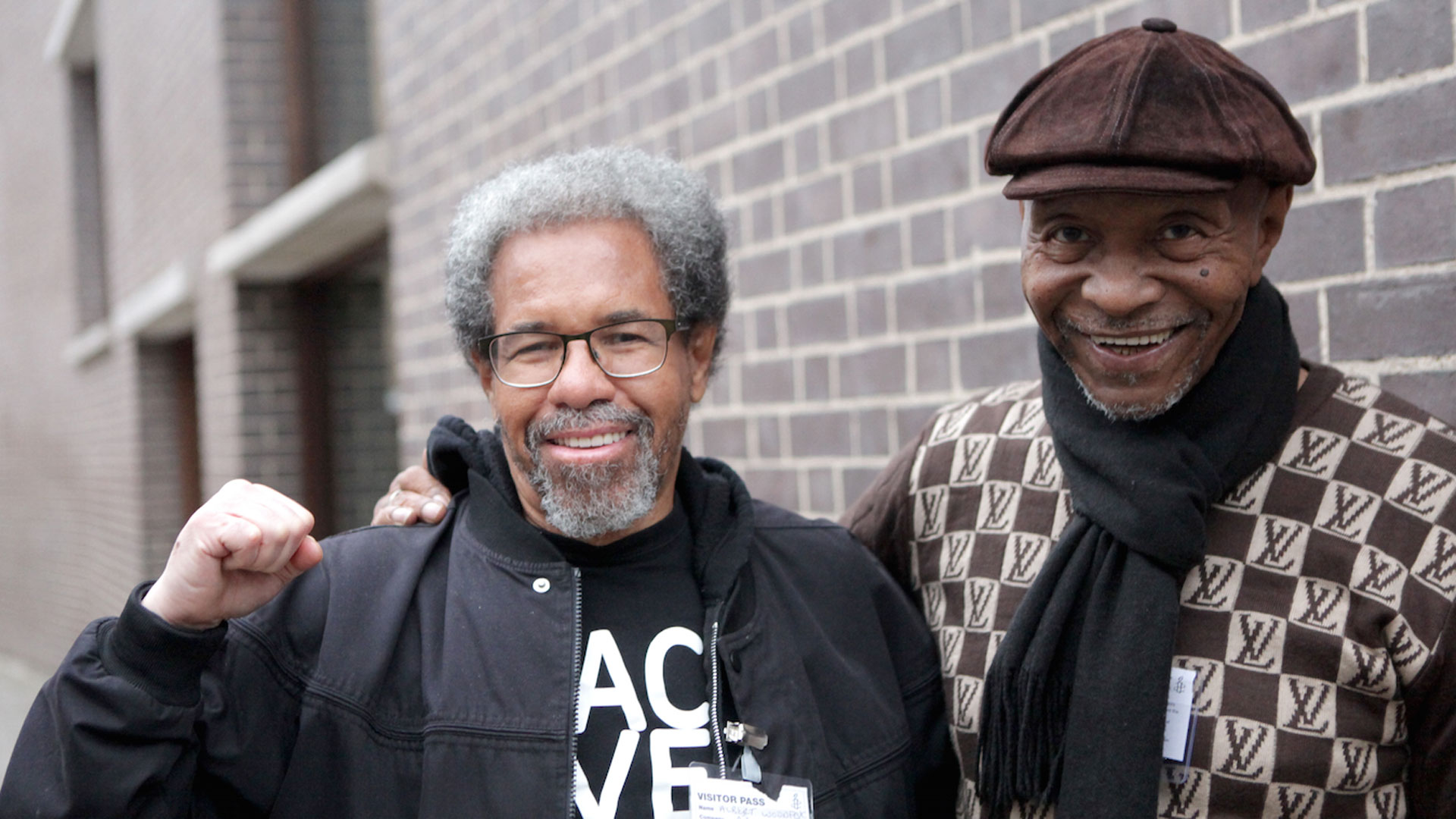Join The Ride Out Recession Alliance
The Ride Out Recession Alliance (RORA) will develop and implement practical steps and solutions to prevent families losing their homes, and help people remain in employment.
Learn More“It was wonderful,” King explains. “I wouldn’t have missed that for nothing in the world. I had lived through the hope of his release a few times, and there had been a lot of hold-ups in the case. When the day finally came, I was set on Albert being freed.”
Woodfox says the first thing he wanted to do was visit the cemetery. His mother and sister had died while he was in solitary, and he was denied the chance to attend their funerals. “For a long time that was a source of pain for me. The cemetery where my mom was buried was actually closed but the next day I went back with a bunch of roses and laid the roses on her grave.”
Nothing changes the horrors of it. It causes a great deal of mental and emotional suffering
Herman Wallace (pictured right) and Albert Woodfox are sentenced to life imprisonment in 1974
Yet there has also been great joy: new relationships with the youngest members of his family. “That has been my biggest enjoyment,” the silver-haired man explains with a smile. “I have a daughter, three grandsons and four great-grand kids. That’s been the best thing – connecting with them. Just taking the grandkids out to places, getting to know them, getting to know their different personalities – that’s been wonderful. My daughter and I have been able to form an extremely close bond in a short space of time.”
The two survivors, Woodfox and King, now want to devote their time fighting for an end to solitary confinement. It remains prevalent in US prisons: an estimated 80,000 Americans are held in isolation on any given day. Several major academic studies have shown the terrible psychological impact of being caged in isolation, and the UN said solitary confinement should be banned for any period longer than 15 days. Beyond that it amounts to “cruel, inhuman or degrading treatment”.
When Malcom X and the Black Panther movement emerged, we were saying ‘black lives matter’
Woodfox, who went through periods of panic attacks in Angola, tries to describe what it was like being kept in a six-foot-by-nine-foot cell with a concrete bunk and metal toilet for 23 hours in the day (he was allowed outside, alone in the yard, for one hour a day). “Even when being moved, you couldn’t stand close by the cell of other people so there was no human contact at all,” he explains. “Nothing changes the horrors of it. It causes a great deal of mental and emotional suffering because you just can’t see a way out.”
As the dust settles on a draining and demeaning US election, King describes some of the outgoing president’s criminal justice reforms – Obama used executive powers to ban isolation for juveniles in federal prisons – as necessary but ultimately unsatisfactory. “It’s incremental, we need a much bigger kind of change.”
We shouldn’t expect that change to come from the top, say Woodfox and King. But the pair are encouraged by the burgeoning Black Lives Matter movement. “It’s not really a new phenomenon,” says King. “When Malcom X and the Black Panther movement emerged, we were saying ‘black lives matter’. The struggle is ongoing. It’s the same issues, with new faces taking the struggle forward using new methods.”
Woodfox nods in agreement. “It’s not a one-issue movement – it’s a movement talking about economic inequality, about political and social change. And we need it. One of my biggest observations when I got out was – shit, ain’t nothing really changed. The thing that surprised me the most was there was no real change in this country. Whatever change people thought existed was only superficial. We went from blatant racism in America to coded racism.”
Hope may seem very thin on the ground at the moment. But the lives of Woodfox and King act as a timely reminder of the power of endurance and perseverance. “I promised myself that I would not let them break me,” says Woodfox. “We knew we would never give up.”





